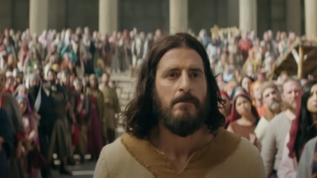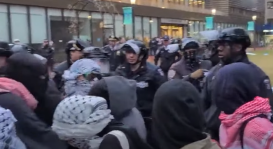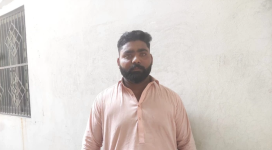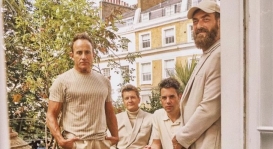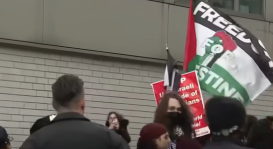The World Council of Churches – the largest ecumenical Christian body in the world, sent a delegation to meet ministers and official government representatives of three non-nuclear NATO countries to prompt those nations to actively promote nuclear disarmament, March 29.
The delegation will spend three days in Budapest, Oslo and The Hague deliberating with the Hungarian, Norwegian and Dutch government to enforce the Nuclear Non-Proliferation Treaty on other nations.
"This is the time for NATO leadership to take demonstrable and measurable steps to advance nuclear disarmament," said Peter Weiderud, director of the WCC Commission of Churches in International Affairs (CCIA). "If they fail to act the NPT will be increasingly jeopardized," he added.
In particular, the three states will be urged to eliminate the NATO security doctrine assertion that nuclear weapons are “essential to preserve peace.” In its place, the WCC is pressing for a clause that affirms the opposite: “the elimination of nuclear weapons is essential to the security of NATO states and the entire world.”
In addition, the three countries will be encouraged to reduce the alert status of strategic nuclear weapons, to formally reject launch-on-warning procedures, to halt all research into the development of new nuclear weapons, and to give national pledges of no-first-use.
Meanwhile, local church leaders from each capital are planning to join the WCC delegation to strengthen the church’s voice against nuclear arms. Local church leaders include: The Archbishop Dr Nifon of Targoviste, member of the WCC executive and central committees and of the WCC's Commission of the Churches on International Affairs (WCC/CCIA) (Romania); The Rev. Dr Ineke Bakker, general secretary, Council of Churches of the Netherlands (Netherlands); Mr Ernie Regehr, CCIA/WCC commissioner , director of Project Ploughshares (Canada); and Mr Peter Weiderud, CCIA/WCC director (Sweden).
The WCC has had the issue of nuclear weapons on its agenda since it was founded in 1948. Last month, the WCC committee on Nuclear arms reiterated its “grave and ongoing concern that certain policies and practices of nuclear weapon states undermine international progress toward nuclear disarmament.”
The statement also called on "churches in the context of the Decade to Overcome Violence to renew their witness for peace and disarmament through education, public awareness building and advocacy to overcome the continuing threat of nuclear weapons."
The following is the schedule for the delegation, as released by the WCC:
Budapest, 29 March
- Mr Ferenc Juhsz, minister of Defence, and Mr Imre Ivncsik, state secretary
- Mr Gbor Brdi, deputy secretary responsible for NATO nuclear policy development
Hungarian delegates
- Rev. Dr Bishop Gusztv Bölcskei (Reformed)
- Rev. Bishop Imre Szebik (Lutheran)
- Rev. Zoltn Tarr, WCC central committee member
Oslo, March 30
- Mr Kim Traavik, vice minister/state secretary MFA
Norwegian delegates
- Rev. Dr Olav Fykse Tveit, general secretary, Church of Norway Council on Ecumenical and
International Relations
- Rev. Ørnulf Steen, general secretary, Christian Council of Norway
- Rev. Dr Trond Bakkevig, WCC central committee member
The Hague, March 31
- Mr Maurits Jochems, director, Security Policy Department, Ministery of Foreign Affairs
Brussels, April 1
- Mr John Colton, NATO assistant secretary general for Defence Policy
To join the WCC delegation:
- Rev. Ruediger Noll, director, Church and Society Commission of the Conference of European
Churches (CEC)



